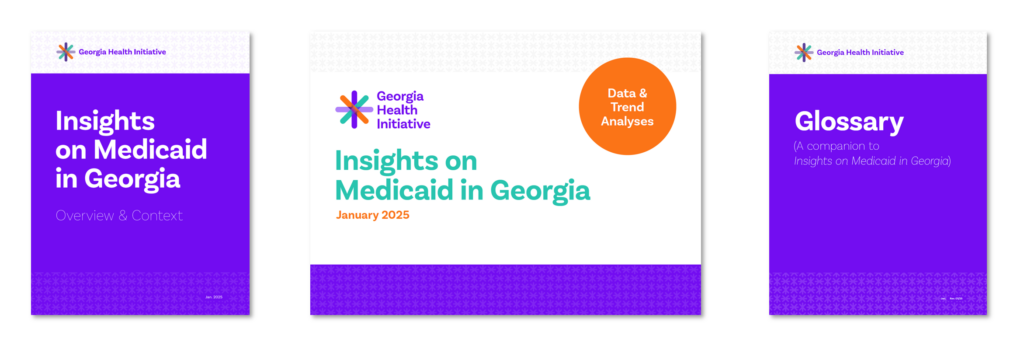In Appreciation of Medicaid in All Its Complexity

by Cindy Zeldin, Vice President of Health Policy and Government Affairs
When I reflect on why I gravitated toward health policy as I began my career many years ago, it was Medicaid in all its complexity and criticality that drew me in.
Medicaid plays a vital role in our state’s health care system: it provides coverage for 2.3 million individuals, including more than 2 in 5 children, finances nearly half of all births in Georgia, and covers approximately 3 in 4 nursing home residents. In many ways, Medicaid serves as the backbone of our state’s health care system, comprising 22 percent of the state budget (including federal dollars flowing into Georgia) and bolstering the state’s health care infrastructure and overall economy, particularly in rural communities.
Because Medicaid is so foundational, it needs to function like a workhorse. At the same time, Medicaid must also stretch, flex, and innovate to meet the complex and varied needs of the populations it serves as the broader health care, economic, human services, and public policy environments continuously change and shift. Given its critical role, it is often at the center of public dialogue among policymakers, health care and social service providers, community-based organizations, and advocates, and it’s often a topic of kitchen table conversation for the individuals and families throughout Georgia who rely on it.
Here at the Initiative, we are committed to sparking substantive conversations and engaging in collaborative efforts to improve and enhance Medicaid in our state. It is in this spirit that we are pleased to publish our Insights on Medicaid in Georgia publication. Designed to provide a comprehensive, timely, and sound source of data and information about Medicaid in Georgia, this resource contains two major components. The first component is Insights on Medicaid in Georgia: Overview & Context, a report providing an overview of Medicaid in Georgia, including contextual information about sources of health insurance and where Medicaid fits in, as well as information about Medicaid’s structure and governance. The second component is Insights on Medicaid in Georgia: Data & Trend Analyses, a compendium that in part features timely data on eligibility, enrollment, and program infrastructure. Given the ever-evolving nature of Medicaid, we will be annually updating and publishing Data & Trend Analyses at the start of each calendar year. And as a companion resource for both, we also compiled a Glossary that contains commonly used terms and phrases.
We envision this resource meeting a wide range of needs. For our state leaders and partners steeped in Medicaid policy, it is the go-to tool you can keep on your desk that provides up-to-date enrollment, expenditure, and other critical data at a glance. For those newer to Medicaid policy, it explains the history of the program, including a straightforward overview of Georgia’s managed care delivery system, that can help emerging health policy professionals contextualize what you may be hearing in news reports or in conversations at the State Capitol about Medicaid and its role.
Even all these years later, I continue to find learning the ins and outs of Medicaid not only fascinating and challenging, but also necessary for meaningfully engaging in conversations about how to improve the health of individuals, families, and communities throughout Georgia.
Medicaid is complex, but it need not be indiscernible. This was a constant refrain that our project team kept top of mind throughout the development of this resource. We at the Initiative worked closely with Health Management Associates, a health care consulting firm with deep expertise around our state’s Medicaid program, and with GD Squared, a graphic design firm that made the data and information visually compelling and accessible. We are so grateful to both for their contribution, as well as to all the state officials, health advocates, and subject matter experts who shared not only data and information but also provided historical context, explained how complex systems and processes work, and who took the time to share their vision of how Medicaid can best serve our state and its people.



